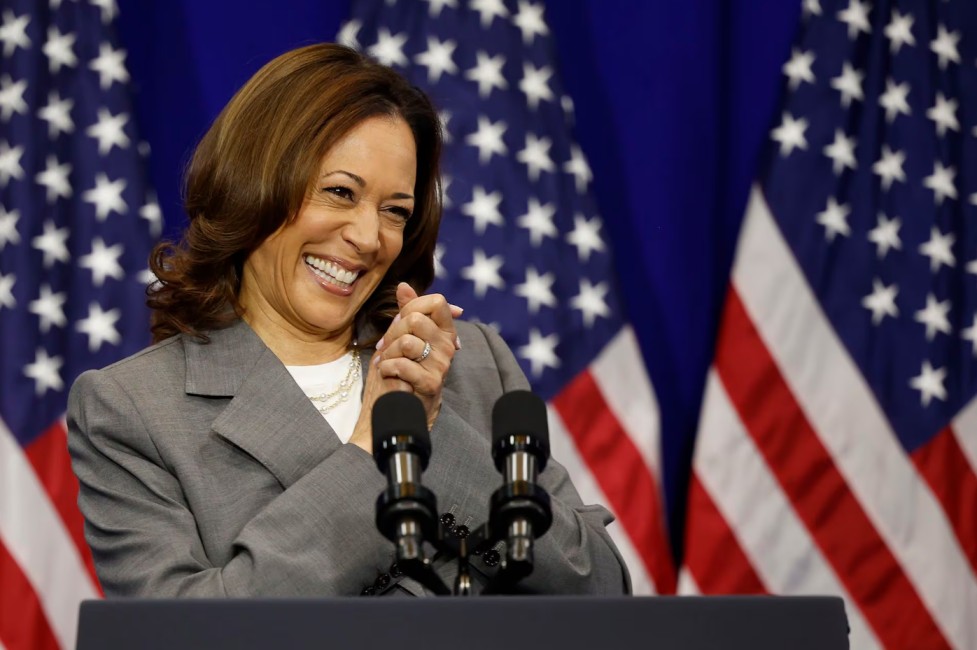The Future for the Democrats and Kamala Harris Stance on Crypto: What Lies Ahead?
As President Biden steps down and endorses Kamala Harris, “the future for the democrats and Kamala Harris stance on crypto” are under scrutiny. What does Harris think about cryptocurrencies, and how will her views shape the Democratic Party’s approach to digital assets? This article delves into her prospective policies and the evolving stance of the Democrats on crypto.
Key Takeaways
- Joe Biden’s decision to drop out of the 2024 presidential race and endorse Kamala Harris significantly boosts her chances of becoming the Democratic nominee, with prominent Democrats rallying behind her.
- Kamala Harris’s position on cryptocurrency remains unclear, although her connections to Silicon Valley suggest potential openness, and her approach to crypto policy will critically impact the sector’s future.
- The Democratic Party faces internal divisions on digital asset regulation, with varying views among key figures, and its stance on crypto will influence its ability to attract tech-savvy voters and shape future policy.
Joe Biden drops out of the Presidential Race, what now?
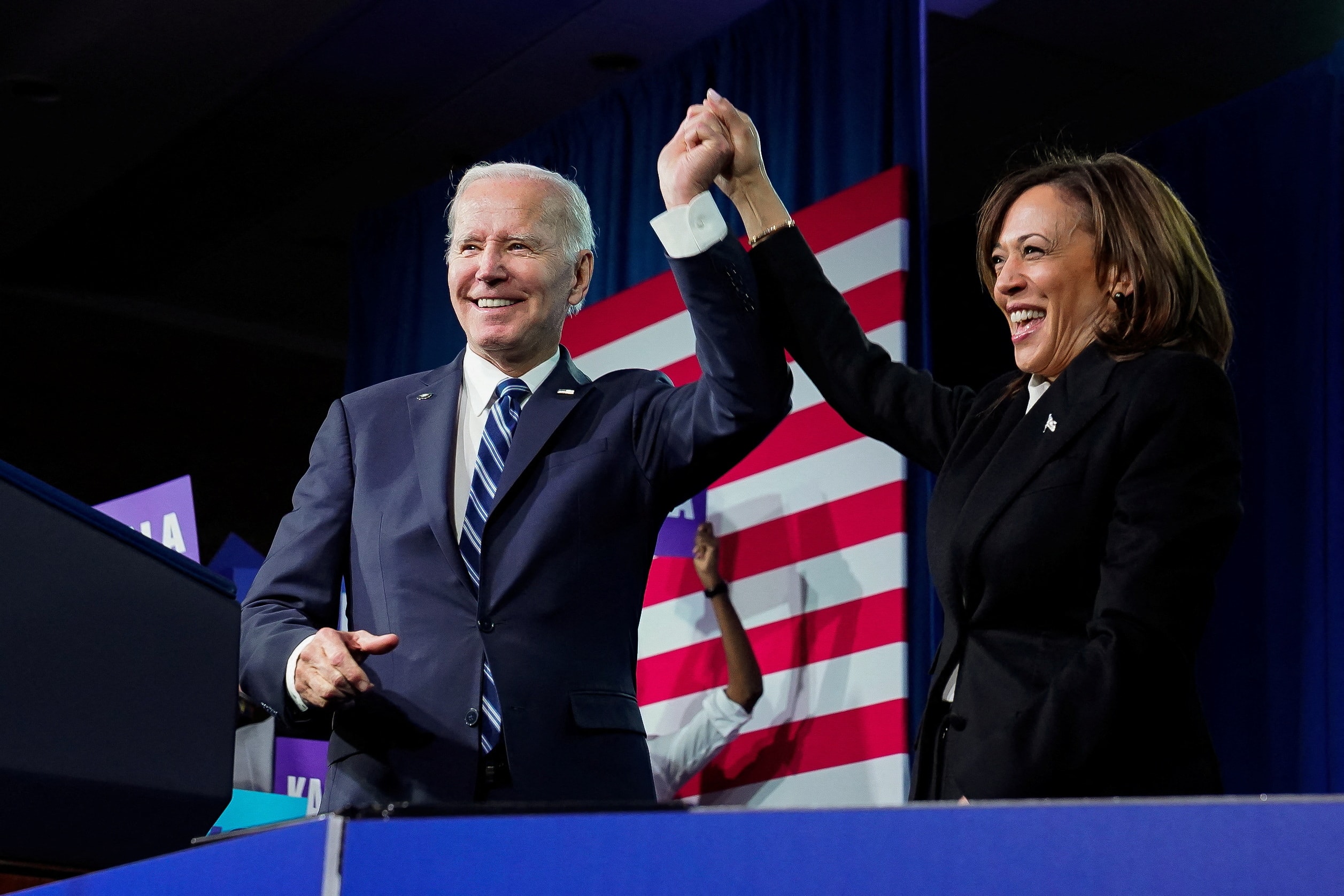
President Joe Biden’s announcement to drop out of the 2024 presidential race has sent ripples through Capitol Hill. Concerns over his debate performance, age, and ability to carry out the campaign were key factors behind this decision. In a move that surprised few, Biden endorsed Vice President Kamala Harris to take his place, signaling his belief in her capability to lead the Democratic Party into the upcoming presidential election. This endorsement could deter other prominent Democrats from challenging Harris, making her nomination almost assured.
The reactions to Biden’s decision have been mixed. Former President Donald Trump wasted no time criticizing Biden, labeling him “not fit” to run or serve, and expressing that Harris would be easier to beat. Meanwhile, prominent Democrats like Michigan Governor Gretchen Whitmer and Michelle Obama have thrown their support behind Harris, further solidifying her position. DNC Chair Jaime Harrison has emphasized a transparent and orderly process to unify the party and select a candidate capable of defeating Trump. Even Biden’s family, including First Lady Jill Biden, have publicly supported his decision.
Kamala Harris, now at a pivotal moment, needs to navigate the challenges of:
- Solidifying her platform
- Addressing key issues, including her stance on cryptocurrency, following Biden’s endorsement
- Uniting the party and appealing to a broad base of voters
- Facing internal party challenges
- Facing the formidable campaign of Donald Trump
The new Democratic presidential nominee, who is also a presidential candidate, will be officially chosen by delegates at the Democratic National Convention in August. The race is on, and candidate Harris must prepare for these challenges.
Kamala Harris’s Position on Crypto
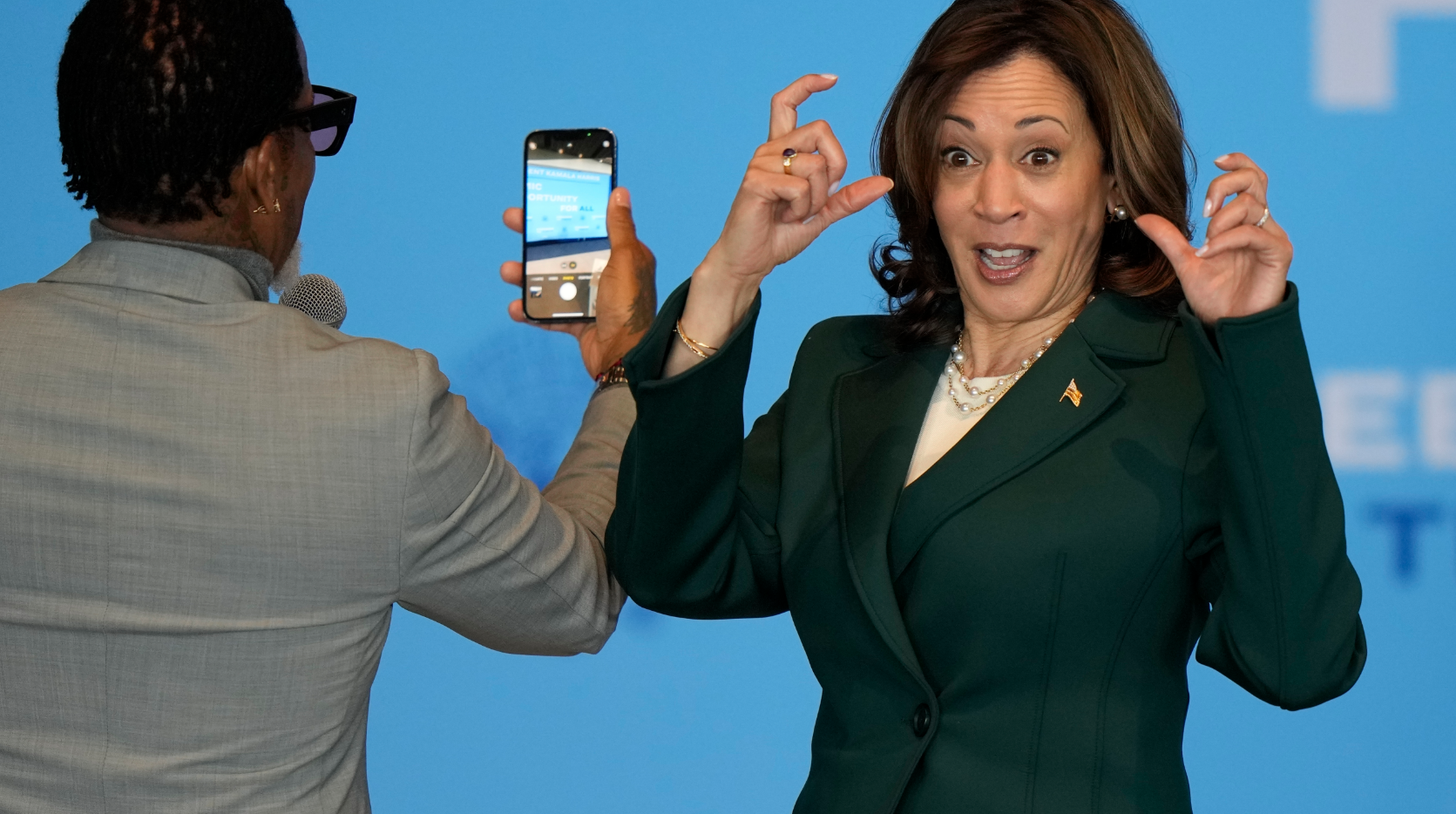
Kamala Harris’s position on cryptocurrency remains largely uncharted territory. During her tenure in Congress and as Vice President, she has not voted on any significant crypto policy. Despite this, her ties to Silicon Valley as a former senator and attorney general of California suggest a potential openness to the crypto industry. This connection could be a double-edged sword; while it might signal a pro-crypto stance, it also leaves room for speculation about her true intentions.
If Harris follows the Biden administration’s cautious approach to cryptocurrency, significant policy changes may be unlikely. Neither she nor her husband own any digital assets, further clouding her stance on the matter. As the crypto sector looks for clear guidance and regulatory frameworks, Harris’s eventual position will be crucial in shaping the future of digital currencies in the United States.
A leader who recognizes the sector’s potential while ensuring balanced regulation is what the closely watching crypto community hopes for.
The Democratic Party’s Evolving View on Digital Assets
The Democratic Party’s views on digital assets are far from monolithic. The Biden administration’s crackdown on the digital asset sector has been met with mixed reactions within the party, reflecting a broader conflict. Some Democrats, like Rep. Josh Gottheimer, have advocated for rational and considerate policies, such as the FIT21 Act, which he describes as bipartisan and thoughtful. However, others, like Rep. Maxine Waters, argue that such legislation could reward crypto companies that evade securities regulations.
This internal debate highlights the tension between fostering innovation and ensuring investor protection. The passage of FIT21 in the House marks a significant milestone for the crypto industry, but its future in the Senate remains uncertain. The Cedar Innovation Foundation, SEC, led by Gary Gensler, has also expressed opposition to FIT21, fearing it might undermine existing securities laws.
The Democratic platform’s shaping and the attraction of crypto voters depend on the party’s evolving stance on digital assets, as it navigates through these conflicting viewpoints.
Potential Impact of a Harris Presidency on the Crypto Sector
Depending on her approach, a President Harris may either maintain continuity or introduce changes to the crypto sector. Given her connections to the Biden administration, it is likely that she might maintain existing policies regarding digital assets. This could mean a continuation of the cautious stance and regulatory measures currently in place. However, Harris’s presidency also presents an opportunity to attract crypto investors and possibly reverse some of the Biden administration’s more restrictive measures.
Harris has been largely silent on her views regarding digital currencies, tokenization, blockchain, or NFTs. Her financial disclosures indicate that neither Harris nor her husband hold any cryptocurrencies, suggesting a lack of personal investment in the sector. If Harris decides to follow through on the Biden administration’s cautious approach, the crypto industry might see little change. However, her potential to reshape the Democratic stance on crypto remains a tantalizing possibility for the sector.
Key Democratic Figures and Their Crypto Policies
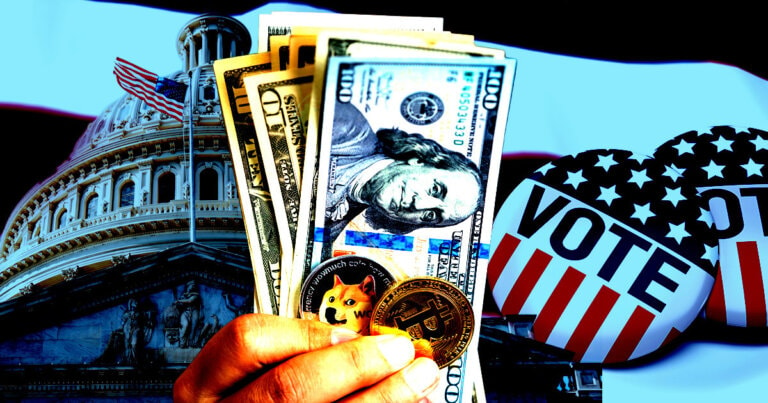
Several key Democratic figures could influence the party’s stance on crypto, each bringing their own perspectives and policies to the table. Understanding their positions provides a broader context for the party’s evolving view on digital assets. Governors and senators like Gavin Newsom, Cory Booker, and Pete Buttigieg stand out as influential voices in this debate.
Governor Gavin Newsom of California has been particularly active in the crypto space, introducing significant measures to regulate and integrate digital assets within the state. Senator Cory Booker has also shown support for the crypto industry, co-sponsoring important legislation and receiving donations from the sector.
Meanwhile, Transportation Secretary Pete Buttigieg has not publicly discussed his stance on crypto but could still influence policy due to his position within the Biden administration. Each of these figures contributes to the Democratic Party’s complex relationship with digital currencies.
Gavin Newsom
Governor Gavin Newsom has taken a proactive approach to regulating and integrating digital assets in California. He signed an executive order to create a comprehensive regulatory framework for blockchain and cryptocurrency companies, aiming to foster innovation while ensuring compliance. This move positions California as a leader in the crypto space and sets a precedent for other states to follow.
The California Digital Financial Assets Law, effective July 1, 2025, further underscores Newsom’s commitment to regulating the sector. This law establishes compliance obligations and stablecoin approvals, reflecting a balanced approach to fostering technological advancement while safeguarding consumer interests. Newsom’s actions highlight his forward-thinking stance and potential influence on national crypto policy.
Cory Booker
Senator Cory Booker has been an advocate for the crypto industry, co-sponsoring the Digital Commodities Consumer Protection Act of 2022. This legislation aims to create a regulatory framework that protects consumers while promoting innovation in the digital commodities market. Booker’s support for this bill reflects his belief in the potential of digital assets to drive economic growth.
In addition to his legislative efforts, Booker has received financial support from the crypto industry, with $17,500 in donations in 2024. This support indicates a level of trust and alignment between Booker and the crypto community. His actions and financial backing suggest that he could play a significant role in shaping future crypto policies within the Democratic Party.
Pete Buttigieg
Transportation Secretary Pete Buttigieg has not made any explicit public statements regarding his stance on cryptocurrency. Despite this, his position within the Biden administration and potential future political ambitions could enable him to influence crypto policy. Buttigieg’s silence on the matter leaves room for speculation about his views and potential actions.
His role in the administration places him in a unique position to impact policy decisions indirectly. As the Democratic Party continues to navigate its stance on digital assets, Buttigieg could emerge as a key figure, especially if he decides to align himself more closely with the crypto sector in the future.
Strategies to Win Over Crypto Voters
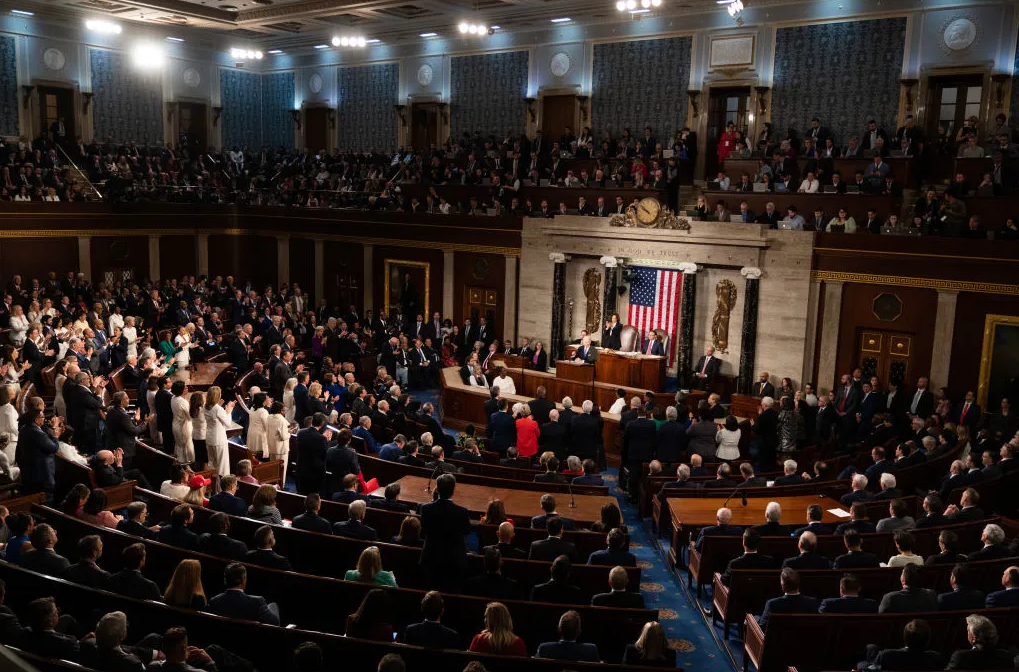
A multi-faceted approach, involving direct engagement, clear policy frameworks, and collaboration with industry influencers, is needed to win over crypto voters. Engaging with crypto communities through town halls and forums can build trust and demonstrate the Democratic Party’s commitment to understanding and integrating digital assets into the economy.
Creating clear and well-defined policies regarding crypto regulation and taxation is essential to appeal to crypto enthusiasts seeking regulatory certainty. Here are some strategies to consider:
- Supporting financial innovation while ensuring consumer protection can attract tech-savvy voters interested in crypto.
- Collaborating with influential figures in the crypto space can further enhance the party’s credibility and appeal among crypto supporters.
- Focusing on crypto should be a top priority for the Democratic nominee, as emphasized by prominent crypto lawyer Jake Chervinsky.
The Role of Silicon Valley and Tech-Friendly Democrats
The party’s stance on crypto and digital assets could be significantly shaped by Silicon Valley and tech-friendly Democrats. Kamala Harris, with her ties to California and Silicon Valley, is viewed as a potential ally to the tech industry. Her cautious approach to new technologies like artificial intelligence suggests a balanced perspective that could extend to crypto.
A recent WIRED analysis indicates that venture industry contributions to Democrats have increased significantly, with the top 20 venture firms and their employees contributing around twice as much to Democrats as to Republicans. This trend highlights the growing influence of Silicon Valley in shaping Democratic policies. Despite some dissenting voices, the political landscape in Silicon Valley remains largely unchanged.
Comparing Harris and Trump’s Crypto Stances
A stark contrast is revealed when comparing Kamala Harris and Donald Trump’s stances on crypto. Harris has never had strong opinions for or against cryptocurrencies, blockchain, or NFTs, reflecting a cautious and somewhat dismissive approach. If she becomes President, she may continue to follow the Biden administration’s cautious stance on digital assets.
In contrast, Trump’s views on crypto have evolved significantly. Initially, he was outspoken against cryptocurrencies, but he has since shifted to a more supportive stance,. This evolution reflects a broader recognition of the growing importance of digital currencies. As the election approaches, the differing stances of Harris and Trump on crypto will be a critical point of consideration for voters.
The Importance of Single-Issue Crypto Voters

In the upcoming presidential election, single-issue crypto voters could play a decisive role. Thousands of crypto supporters are considered single-issue voters, making their stance on digital currencies a significant factor. A recent poll indicates that 1 in 5 registered voters view crypto as a major issue, and nearly half of the respondents expressed distrust in candidates who show anti crypto support by interfering with crypto.
Winning over these voters could be critical in key battleground states like Michigan and Pennsylvania, where the outcome of the election may hinge on a few percentage points. The importance of single-issue crypto voters cannot be underestimated, as their support could tip the scales in a closely contested race.
Conclusion: A New Era for Crypto and Politics?
As we look towards the upcoming presidential election, the intersection of crypto and politics presents a fascinating dynamic. Kamala Harris’s potential impact on the crypto sector remains uncertain, but her presidency could:
- reshape the Democratic stance on digital assets
- introduce meaningful regulatory frameworks
- see the rise of balanced regulation that fosters innovation while ensuring consumer protection.
The Democratic Party’s ability to navigate its evolving views and attract crypto supporters will determine the future of crypto in politics. With the right approach, the party could harness the power of digital currencies to drive economic growth and innovation, heralding a new era of regulation and technological advancement.
Summary
The intersection of politics and cryptocurrency is becoming a critical battleground as we approach the 2024 presidential election. With President Joe Biden stepping down and endorsing Kamala Harris, the Democratic Party faces a pivotal moment. Harris’s connections to Silicon Valley and her potential to shape crypto policies are under intense scrutiny. The Democratic Party itself is grappling with evolving views on digital assets, balancing innovation with regulation.
Key Democratic figures like Gavin Newsom, Cory Booker, and Pete Buttigieg bring diverse perspectives to the table, reflecting the party’s complex relationship with crypto. Strategies to win over crypto voters will be crucial, especially in key battleground states where single-issue voters could tip the scales. As we compare Harris’s cautious stance to Trump’s evolving support for crypto, the importance of digital currencies in shaping the political landscape becomes clear. The future of crypto and politics may indeed herald a new era of regulation and innovation, depending on the Democratic Party’s approach and the election’s outcome.
Frequently Asked Questions
What prompted President Joe Biden to drop out of the 2024 presidential race?
President Joe Biden dropped out of the 2024 presidential race due to concerns about his debate performance, age, and ability to carry out the campaign, as well as pressure from top Democrats and campaign donors.
What is Kamala Harris’s stance on cryptocurrency?
Kamala Harris has not publicly discussed her stance on cryptocurrency, despite her connections to Silicon Valley. No significant crypto policy votes or digital asset ownership have been attributed to her.
How are the Democratic Party’s views on digital assets evolving?
The Democratic Party’s views on digital assets are evolving, with some members supporting crypto-friendly policies and others remaining cautious, reflecting a tension between fostering innovation and ensuring investor protection.
What impact could a Harris presidency have on the crypto sector?
A Harris presidency could maintain or introduce new regulations in the crypto sector, potentially impacting investors and reversing restrictive measures.
Why are single-issue crypto voters important in the upcoming election?
Single-issue crypto voters are important in the upcoming election because they could significantly impact election outcomes, especially in key battleground states like Michigan and Pennsylvania. These voters prioritize candidates’ stances on digital currencies, making their support crucial in closely contested races.

